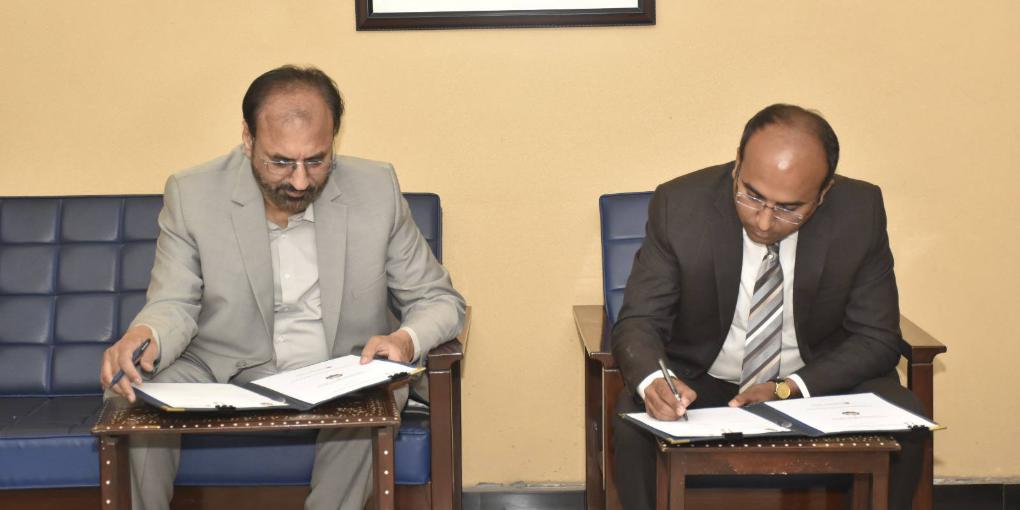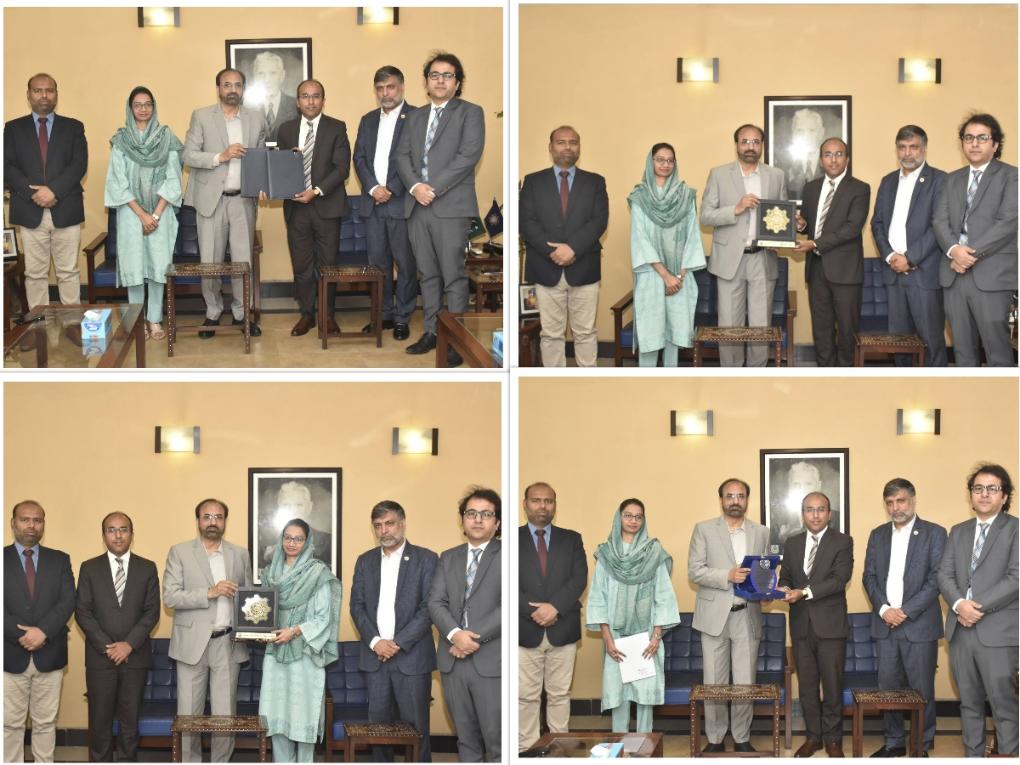
Transparency International Pakistan has launched Youth Climate Education and Fellowship Program 2025 in collaboration with University of Engineering and Technology (UET), Lahore. In a significant collaboration aimed at promoting youth engagement in addressing environmental challenges, the University of Engineering and Technology (UET), Lahore, and Transparency International Pakistan have jointly launched the Youth Climate Education and Fellowship Program.
This initiative was formally inaugurated with the signing of a Memorandum of Understanding (MoU), signifying a pivotal step towards advancing climate governance education and promoting sustainable development. Prof. Dr. Shahid Munir (TI), Vice Chancellor, UET Lahore, Mr. Kashif Ali, Executive Director, Transparency International Pakistan, Dr. Izzat Iqbal Cheema, Associate Professor, Department of Chemical, Polymer and Composite Materials Engineering, UET, Lahore, and Ms. Fariha Fatima, Programme and Procurement Associate, TI Pakistan witness MOU signing ceremony. Prof. Dr. Naveed Ramzan, Dean Faculty of Chemical, Metallurgical & Polymer Engineering, Prof. Dr. Sayyed Mohsin Ali Kazmi, Chairman, Department of Chemical, Polymer and Composite Materials Engineering (New Campus) and Prof. Dr. Hafiz Zaheer Aslam, Chairman, Department of Chemical Engineering were also present.
The main objective of this fellowship is to educate and empower university students with in-depth knowledge of climate change, governance, and social accountability, enabling them to actively participate in climate policy advocacy and leadership. The program aims to nurture a new generation of youth leaders committed to transparent and sustainable climate action. This initiative will select 40 students from various departments across UET, offering them a unique opportunity to participate in an intensive eight-month program. The program is designed to enhance participants’ understanding of critical areas such as climate change, policy development, sustainable practices, carbon markets, disaster risk management, and the socio-economic dimensions of environmental issues. The fellowship will culminate in an Innovation Challenge, where participants will apply their knowledge to propose practical and impactful solutions to real-world climate challenges.
